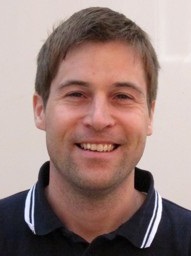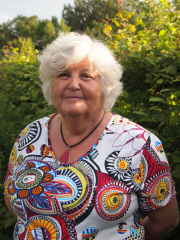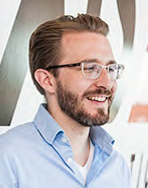Lars-Ola Damm
Lars-Ola Damm has for more than 15 years been employed by Ericsson, which is one of the largest ICT companies in the world. There he has had several roles, including software development assignments, driving global process improvement initiatives, and various management positions. He has during this time also been active in several research collaboration projects between Ericsson and academia. Currently, he is line responsible for a software product that is a core application in the mobile network, managing transactions for almost 2 billion subscribers world-wide.
Furthermore, he has a Ph.D. in the field of Software Engineering, including a number of published empirical studies. The key focus of the thesis was the proposal of a quality measurement approach that also became widely adopted throughout the company.
Lessons learnt from industry-academia collaboration on global software engineering.
Ericsson has collaborated with academia regarding research on Global Software Engineering (GSE) over the last 8 years. The key focus of the research has been to evaluate different strategies to distributing software development across multiple geographical locations. The results include guidelines and lessons learned on software transfers and distributed development. Furthermore, case studies have been conducted to determine how efficient different strategies are. This talk will summarize this research from an industry-partner perspective. It will also provide some recommendations on considerations for researchers to make to be successful with industrial case studies.
Gudrun Svensson
Gudrun Svensson Ph.D, is senior lecturer in Swedish as a second language at the Linnaeus University in Växjö. For many years she taught Swedish as a second language, Swedish and English at upper secondary level. At present she is active in teacher training, in-service training and skills development in the field.
Doctor Svensson has done research into linguistic variation in multilingual environments but today she aims her research at in-field studies of mutlilingualism in cooperation with teachers and students. An increasing focus for her studies is translanguaging as an element in all school subjects.
Based on research into successful learning of a second language she is also involved in the development of digital learning tools in Swedish as a second language.
Translanguaging space in an educational game.
The educational adventure game Sweet City is developed by Universal Learning Games in cooperation with Gudrun Svensson, a language researcher at the Linnaeus University.
The linguistic construction of the game emanates from two language learning principles, Total Physical Response (Asher 1988) implemented in the game through an avatar that gives the learner the opportunity to monitor his or her own learning, and Translanguaging (i.e. Williams 1996) with the concept that all languages that an individual has access to are part of a common well of linguistic experiences. Thus, all linguistic development relies on previous experience which is a support for learning and memory.
In Sweet City this support is implemented by the opening of labels with key words and central concepts that are tied to phenomena in the game, and can be used by the player to create meaning and perform the required assignments. By doing this, languages and actions are closely tied to each other.
Game play is designed for receptive language ability with oral and written dialogues that are to be listened to and read in order to perform assigned quests. The dialogues can be repeated and the player can choose support from labels with heritage languages common in Swedish schools: Tigrinya, Arabic, Dari, Somali and also the widespread English. As in all adventure games there are dangers to overcome, problems to solve, items to sell and buy, points and money to earn. There is a special display where the student, the teacher and a researcher can monitor the use of labels, time spent, repetitions, performed actions and the results of special check points which hint at the student’s overall comprehension of the story in the game.
Baldvin Gislason Bern
Baldvin Gislason Bern is a Research and Development Expert at Axis Communications, where he works mainly with test strategies and improvement activities. Past experiences include heading teams of engineers from Bosch, Panasonic, Siemens and Sony in creating API standards for physical security devices such as security cameras and physical access control systems. Baldvin is currently involved in the Software Center research collaboration, where companies cooperate with universities on software engineering research aimed at improving the development practices of the companies.
From theory to practice – Experiences of industry-academia collaboration from Axis Communications
The differences between academia and industry can pose a challenge for industry to apply research to their way of working. Axis has, ever since it was founded in a university dorm room in 1984, had close cooperation with academia. In his talk, Baldvin will talk about Axis’ experience with industry-academia collaboration; the successes, the disappointments and what we see as a way forward.




